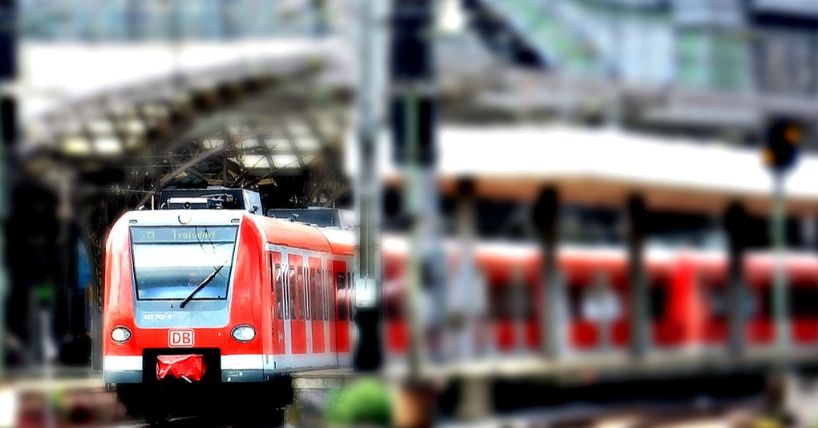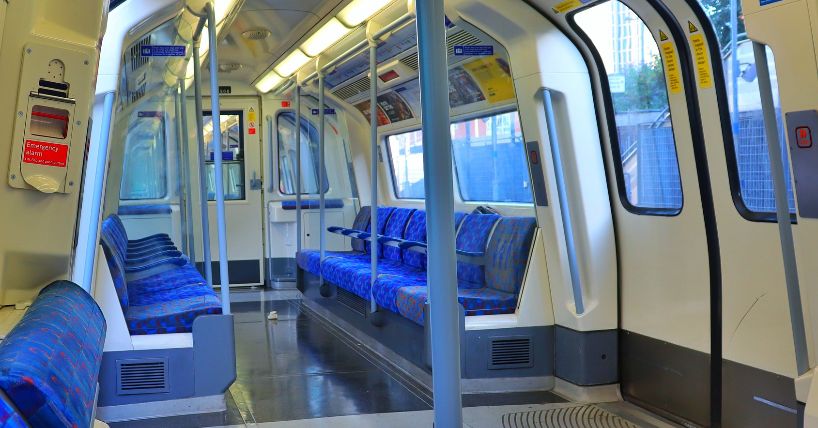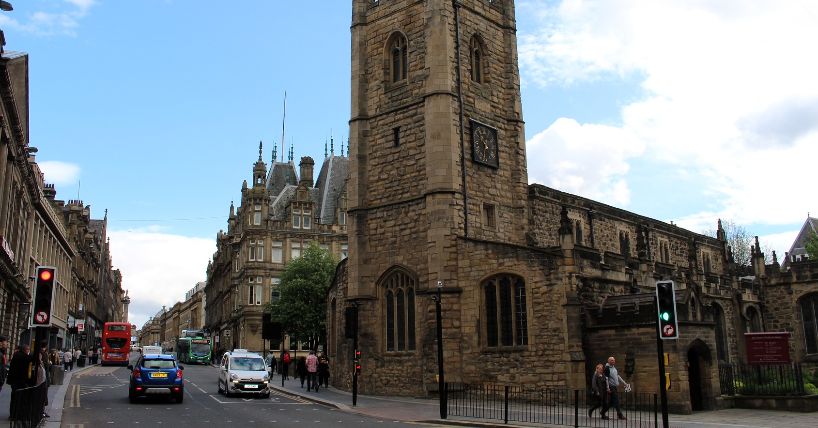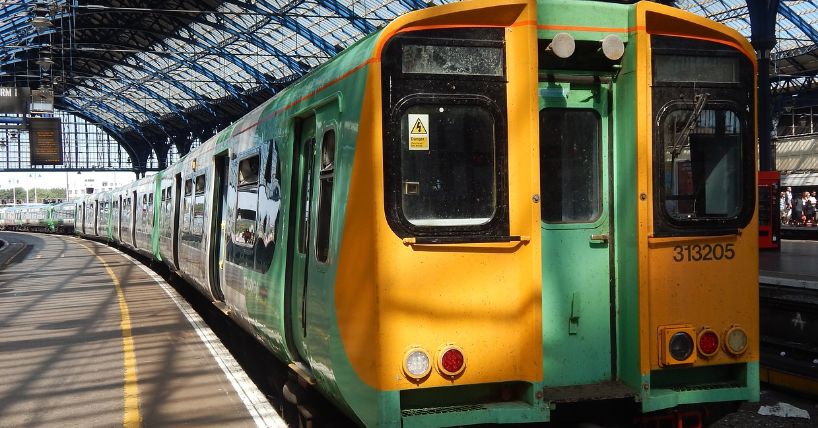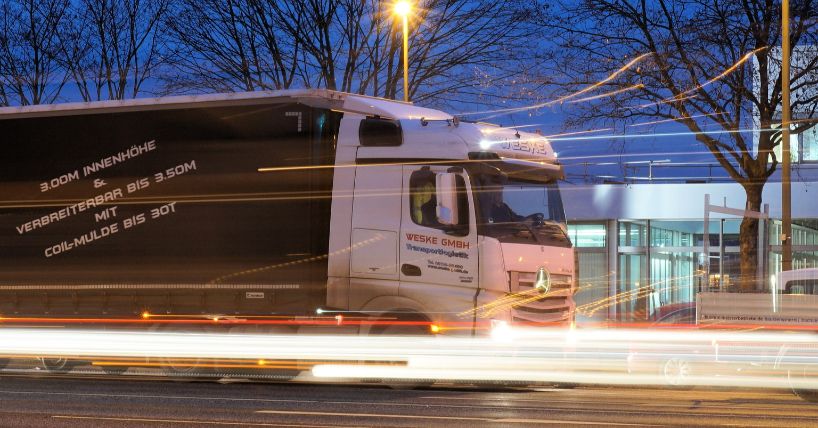Research Group: Future Mobility
International excellence in transport research.
At the forefront of research into sustainable transport.
The Future Mobility Group Vision is to be the leading transport research team with the highest level of expertise in both passenger and freight, placing and promoting Newcastle University at the heart of the mobility challenge.
The Future Mobility Group brings together a unique pool of complementary expertise to address the challenge of how technology can transform the transport systems of the future whilst tackling the key challenges of decarbonisation, transport technologies and placing the user at the heart of future transport systems.
We are working with alternative propulsion systems for decarbonisation purposes, one of which is hydrogen but there are others, electrification of rail, alternative traction sources etc. We are researching how we can influence travellers to make more sustainable travel choices. We are exploring the role connected autonomous electric vehicles, future and shared mobility services have and the impact they will have on travel behaviour, user acceptance as well as the environment.
Working across the University
In 2017, five schools merged to form the School of Engineering. There was a strong desire for transport and transport-related researchers to work together.
To this end, we merged TORG - the Transport Operations Research Group - with NewRail. NewRail was a dedicated railway research centre with a vast range of expertise in diverse areas of the rail industry.
These two research teams form the core of the Future Mobility Group.
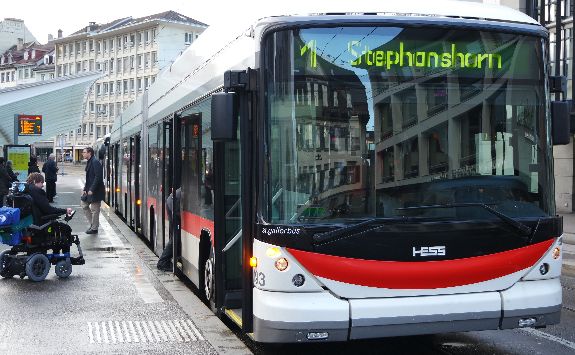
We are also linking with transport and transport-related University groups and units. Some are explicitly transport, such as Marine Technology, the Design Unit, and the Advanced Propulsion Centre. Others are related disciplines. They form the underpinning eco-system of the ‘added value’ of transport related research, such as:
- computing
- big data
- behavioural economics
- energy
- environment
- health
- ageing
- sustainability
- sensing
Newcastle is an appointed Centre of Excellence for Rolling Stock. Through the UK Rail Research and Innovation Network UK, this has led to an award of £2m for investment in testing facilities.
Working with Government and industry
Future Mobility has excellent stakeholder engagement from Government. Professor Phil Blythe is the Government's Department for Transport Chief Scientific Adviser.
We work with local councils, Local Enterprise Partnerships (LEPs), our alumni, and industry. We have strong industrial engagement. We work closely with Network Rail, Jaguar Land Rover, Nissan, Siemens, Rolls Royce, Nexus, Hitachi, and others.
We are Members of:
- ECTRI: European Conference of Transport Research Institutes
- ERRAC: European Rail Research Advisory Council
- ERTICO: ITS Europe
- IRRB: International Railway Research Board
- Open ENLOCC: European Network of Logistics Competence Centers
- RIA: Rail Alliance
- UKRRIN: UK Rail Research and Innovation Network
- UIC: International Union of Railways
- UITP: International Association of Public Transport
- ITS (UK): Intelligent Transport Systems UK
- PACTS: Parliamentary Advisory Council for Transport Safety
- ALICE ETP: Alliance for Logistics Innovation through Collaboration in Europe
Research
Exploring the future of transport systems.
We have excellent academics and researchers with international reputations for transport research. Our PhD students provide invaluable contributions to our multi-model, multi-disciplinary research portfolio.
Our expertise ranges from transport technology and engineering to analysing user behaviour. We are at the forefront of research into sustainable, environmentally friendly transport. We lead the way in logistics research.
We deliver research and training to meet the complex challenges of the rail and transport industry. We bring together regulators, operators and customers.
Network Rail: SLEEPERS project
Novel materials, such as synthetic-composites, are already in use across Europe. They are a sustainable and environmentally friendly alternative to timber sleepers and bearers. They also provide a solution to help mitigate the upcoming European ban on the use of Creosote as a timber preservative. But, to date, the application of synthetic-composite sleepers has generally been limited to specific pilot sites and to tracks applications with low speeds and tonnage. At the same time, in response to the sustainability challenges, there have been significant advances in:
- the carbon footprint of existing sleeper materials
- novel materials used in other sectors that may be suitable for use as sleepers
EUH2020 - SAFETY4RAILS
(Data-based analysis for SAFETY and security protection FOR detection, prevention, mitigation and response in trans-modal metro and RAILway networkS)
We are increasing the safety and recovery of track-based inter-city railway and intra-city metro transportation. The project addresses cyber and physical attacks and combined cyber-physical attacks. These are important emerging scenarios, given the increasing IoT infrastructure integration. Using a holistic approach, we will:
- analyse the cyber-physical resilience of metro and railway systems
- deliver mitigation strategies for an efficient dynamic response
Join Us
The Future Mobility Group has an international reputation as a leading transport research team with the highest level of expertise in both passenger and freight, placing and promoting Newcastle University at the heart of the of the mobility challenge. We offer exciting opportunities for academics, researchers, PhD and MSc students.
Alumni
We are always keen to hear from our student and staff alumni. Contact staff directly, to keep informed of our latest activities.
Job Vacancies
We often have exciting opportunities available to join our team. Check Newcastle University job vacancies for current opportunities.
For any queries, please contact Head of Group Professor Mark Robinson in the first instance.
Teaching
Taught Programmes
From day one, our Undergraduate Programmes give students a path to become a professional engineer addressing major global challenges.
Our Postgraduate Taught (MSc) Programmes equip students with the advanced skills and expertise to help shape the world.
.png)
